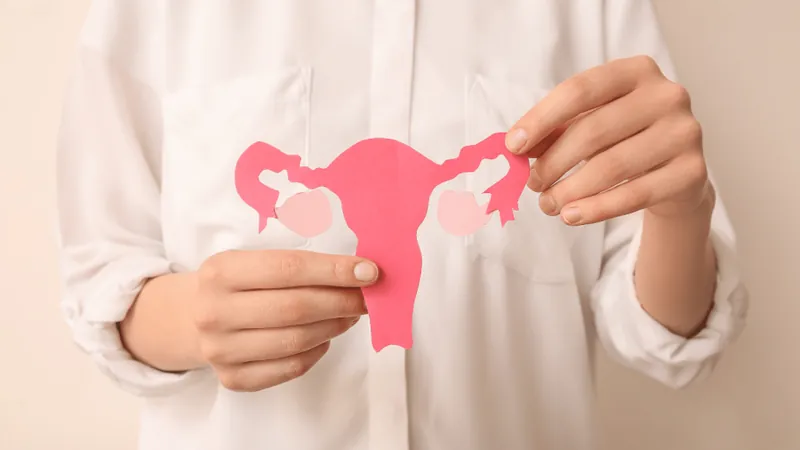
The Silence Surrounding Vaginismus: A Struggle Faced by Many Women in Pakistan
2024-10-25
Author: Nur
Date: October 25, 2024
ISLAMABAD – Vaginismus, a condition often shrouded in silence and stigma, significantly affects many women in Pakistan. Yet conversations about it remain virtually absent in a culture where issues surrounding female reproductive health are often dismissed or tabooed. One woman's journey, Laiba*, sheds light on the struggles faced by countless women grappling with this condition.
At 29, Laiba sought help from a well-respected gynecologist in Karachi only to be met with dismissive and hurtful remarks that haunted her for years. “Your husband is going to leave you, mark my words,” the doctor said, leaving Laiba frozen with shame and bewilderment. After spending two years in emotional turmoil, she finally found a doctor who listened without judgment. Following a diagnosis of vaginismus, Laiba felt a strange sense of relief upon discovering that her experience had a medical name, and that she was not alone in this struggle.
What is Vaginismus?
Vaginismus is characterized by involuntary muscle contractions around the vagina, leading to difficulties with penetration. According to the NHS, this condition can be painful and distressing but is treatable. Dr. Mala Jitendra Shahani, a consultant gynecologist in Karachi, explains that vaginismus often intertwines psychological factors with physical responses. Women may find it difficult to insert items like tampons or undergo penetrative sex, although they may have no trouble with other forms of penetration.
The psychological aspects are critical. Dr. Shahani highlights that women’s perceptions of sex, often influenced by cultural taboos, can lead to a learned anticipation of pain and discomfort. “Many women grow up hearing negative narratives about intimacy, embedding fear and shame within them,” she notes.
Moreover, Dr. Omema Akhtar from the Jinnah Postgraduate Medical Centre emphasizes that vaginismus is not a rare condition—estimates suggest that approximately 5% of women may experience it. The perception that it is rarely discussed leads to countless women suffering in isolation, unaware of the support available.
Barriers to Treatment and Recovery
The path to diagnosis and treatment is fraught with challenges. Many women feel pressured to remain silent, fearing stigma or misunderstanding from healthcare professionals. Conversations around sexual health often revolve around discomfort, pain, and shame rather than an open dialogue about women’s wellbeing.
Counselor and sex therapist Samia Khan explains that societal pressures and attitudes toward intimacy can severely impact a woman’s self-perception and ability to engage in healthy sexual relationships. She advocates for the importance of physical therapy to mitigate symptoms and psychological support to tackle underlying anxiety.
Finding Help
For women like Ayesha*, the search for answers began with a simple online inquiry about “fear of penetration.” It connected her to a community of fellow sufferers, though she struggled with the cultural differences in the narratives surrounding vaginismus.
Physical treatments can include relaxing the pelvic floor muscles and counseling. Dr. Shahani suggests using simple alternatives like candle sticks for pelvic therapy, framing it as a partnership process where the supportive presence of a partner can markedly enhance recovery.
The Bigger Picture
The struggle with vaginismus reveals broader societal issues regarding women's health. In Pakistan, discussions around reproductive health often lack depth due to entrenched stigmas and taboos. The long-standing neglect of women’s health issues reflects a deeper need for education and open conversations about intimacy and sexual wellness.
For many women like Hamnah*, whose traumatic experiences shaped her view of intimacy, healing is complicated yet possible. She shares, “My traumatic experiences made intimacy seem impossible, but I strive to confront my fears. I haven't remarried, but my journey includes learning to trust again.”
Conclusion
Vaginismus, though often hidden, affects a notable segment of women in Pakistan. The emotional scars from silence and shame can last a lifetime. As awareness grows and more women begin to share their stories, it may pave the way for better understanding, empathy, and support. The journey to reclaiming intimacy and pleasure should not be walked alone. It is vital to foster an open dialogue regarding women’s health to break the cycle of shame and stigma that many experience. Through education, compassion, and community support, healing becomes a collective journey for empowerment.



 Brasil (PT)
Brasil (PT)
 Canada (EN)
Canada (EN)
 Chile (ES)
Chile (ES)
 España (ES)
España (ES)
 France (FR)
France (FR)
 Hong Kong (EN)
Hong Kong (EN)
 Italia (IT)
Italia (IT)
 日本 (JA)
日本 (JA)
 Magyarország (HU)
Magyarország (HU)
 Norge (NO)
Norge (NO)
 Polska (PL)
Polska (PL)
 Schweiz (DE)
Schweiz (DE)
 Singapore (EN)
Singapore (EN)
 Sverige (SV)
Sverige (SV)
 Suomi (FI)
Suomi (FI)
 Türkiye (TR)
Türkiye (TR)